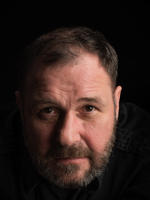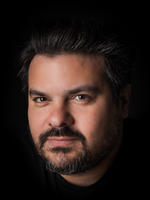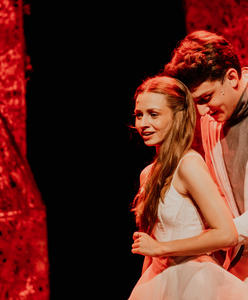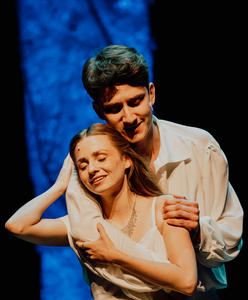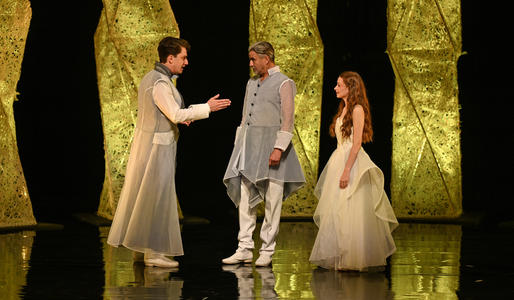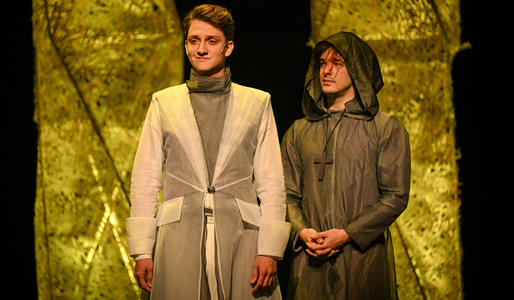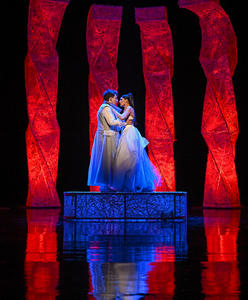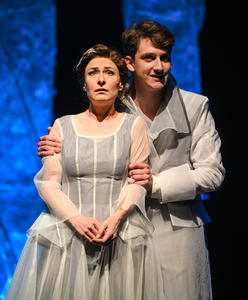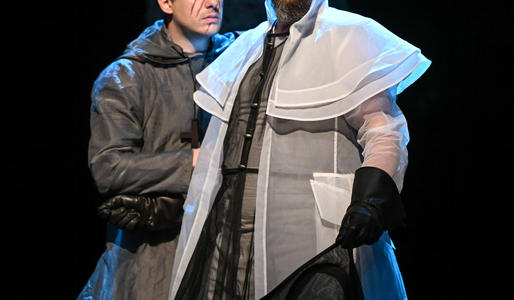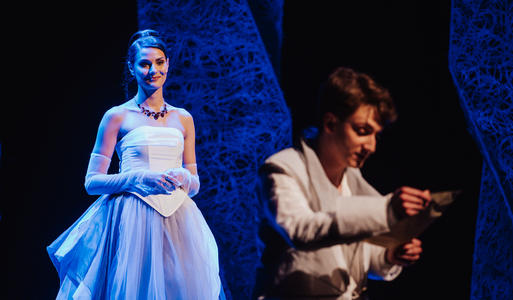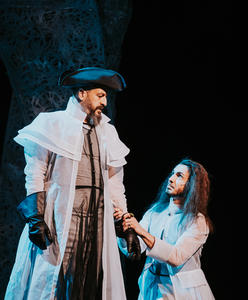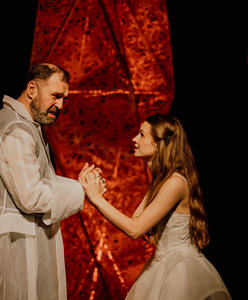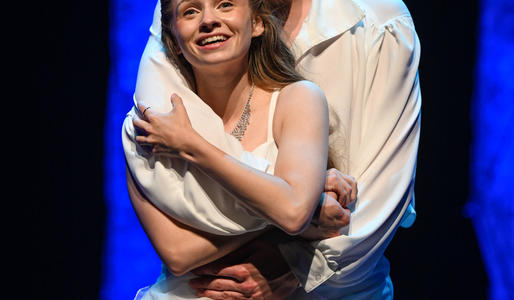a lyrical drama in musical guise
The drama theatre in Brno known as the Free Theatre opened with Nezval’s play Manon Lescaut on 14 June 1945. The choice of this title was based on the enormous popularity of Nezval’s text among the Czech youth of the Protectorate period and was a demonstration of the joy of the newfound freedom which was expressed in the “dancing Czech word”. The establishment of the new theatre satisfied the desires of the Czech inhabitants of Brno, who longed to have their own young theatre. Its history is long and extremely interesting. After four seasons, the Free Theatre became the Municipal and Regional Theatre, and soon afterwards became the District and Regional Theatre in Brno. Since the 1954/1955 season, it bore the name the Mrštík Brothers Theatre, and since June 1993 we have all known it as Brno City Theatre. In June 2025, our theatre will be celebrating the eightieth anniversary of its foundation, and we will be commemorating this anniversary by presenting the title that took centre stage at the very beginning.
Director Stanislav Moša is staging Nezval’s text for the second time. He first staged the work in 1995, when the theatre celebrated its fiftieth anniversary with this production in the newly renovated auditorium in Lidická Street. At that time, the director and theatre manager wrote of Nezval’s text that, “There is little Czech theatre literature that can be said to be a poem. It speaks a true passion bound by an amazing form enchanted in the beauty of the Czech language.” Moša’s adaptation of Manon Lescaut, which bore the subtitle “a lyrical drama-confession”, freed itself of the linear narrative of the famous story to create a timeless parable. The old Abbé des Grieux recalls his fateful relationship with a sinful saint, thereby giving the originally lyrical story dramatic dimensions, and ancient secrets, insinuations and loves come back to life in the memories of a man approaching the end of his life.
None of the above has lost its relevance and power of testimony today, which is why the City Theatre has decided to present this bitter love adventure anew in a new musical version (as befits our theatre). The music is to be written by the young composer Lukáš Janota. The new direction by Stanislav Moša is to come to life this time at the Bishop’s Courtyard so that an audience of a new generation can experience this ancient romance from the eighteenth century which was brilliantly set to verse and adapted for the Czech milieu in 1940 by Vítězslav Nezval from the original novel by Antoine François Prévost.







